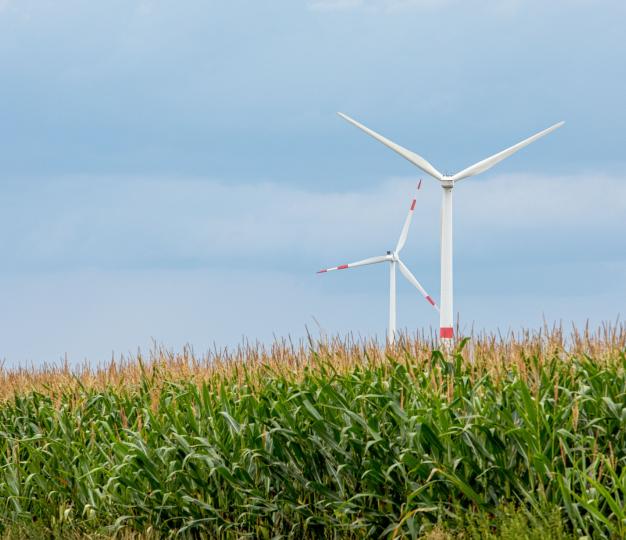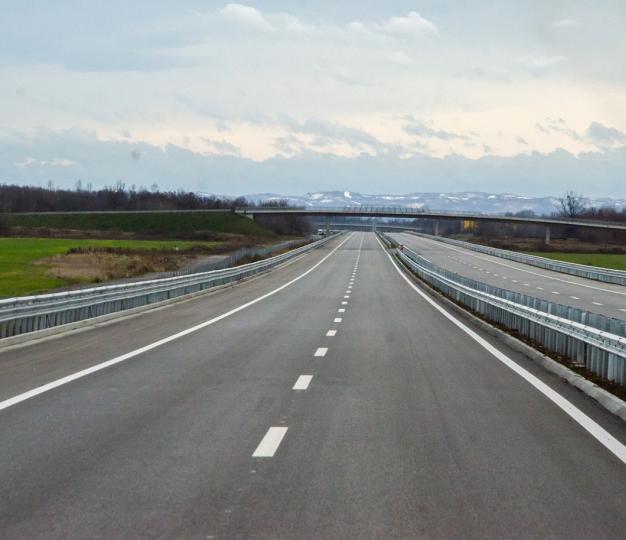EU Projects with Bosnia and Herzegovina
The EU is the single largest provider of funds and financial assistance in Bosnia and Herzegovina (BiH). Since 1996, the EU has invested more than €3.5 billion firstly towards post-war reconstruction and subsequently to assist BiH in its accession process across all key sectors. In doing so, the EU has been using a variety of financial instruments, out of which the most comprehensive one is the Instrument for Pre-Accession Assistance (IPA). EU pre-accession funds are helping support BiH’s political and economic reforms, preparing the country for the rights and obligations that come with EU membership, while also ensuring improved standards and services for its citizens.
Public Administration Reform
The EU has supported the preparation of BiH’s new Public Administration Reform (PAR) Strategic Framework via EU-funded SIGMA expertise as well as the Public Financial Management (PFM) strategy. At the same time, the EU has been supporting the Public Administration Reform Coordinator’s Office (PARCO) in BiH in order to create preconditions for the start and unhindered implementation of the PAR Strategic Framework. The EU also supports young civil servants in Bosnia and Herzegovina by providing them with specialised training through the EU Scheme for Young Professionals in BiH.
Further ongoing projects are aimed at improving Public Internal Financial Control (PIFC), strengthening the Internal Audit Department of the Indirect Taxation Authority (ITA) of BiH, the public procurement system, helping the introduction of electronic signature and issuance of a qualified digital certificate, improving the public employment data through the establishment of two entity-level central registries of public sector employees, strengthening human resource management and improving the preparation and implementation of the Economic Reform Programme.
The EU strongly supports the statistical system of Bosnia and Herzegovina, through projects aimed at strengthening the statistical system institutional capacities and further harmonising statistics in BiH with EU standards.
The EU also supports all parliament levels in BiH through consecutive twinning projects and by providing adequate equipment including servers, technical and logistical equipment to support the legislative alignment and the oversight role of the parliaments in BiH.
Justice and Home Affairs
The EU has provided continuous support to the development of a modern judiciary in BiH with a focus on the use of information and communication technologies and performance management with the aim to provide better, faster and more transparent services to citizens. EU support has included investing in infrastructure as well as capital investments in the courts and prosecutor’s offices. The EU is also significantly engaged in improving the conditions and the knowledge in the area of execution of criminal sanctions.
The judiciary’s capacity for processing war crimes cases is being strengthened with about €15 million in assistance supporting the salaries and material costs of courts and prosecutors' offices all across Bosnia and Herzegovina. The EU supports the monitoring of the processing of war crime cases. The EU also provides back-to-back grants to the International Commission on Missing Persons (ICMP), thus contributing to addressing the persisting challenges of transitional justice by carrying out DNA-assisted identifications of persons missing as a result of war and by providing forensic support.
EU support to the Home Affairs sector inter alia includes the fight against (transnational) organised crime, the fight against terrorism, preventing and countering violent extremism, the fight against money laundering, the fight against cybercrime, data protection and data security, visa, asylum, migration and Integrated Border Management (IBM).
Since early 2018, the European Union has provided so far over €89 million to address the needs of refugees, asylum-seekers and migrants and to help BiH strengthen its migration management capacities. The support comes from different sources of funding, mainly through the Instrument for Pre-Accession (IPA), but also includes €13.8 million of EU humanitarian assistance.
Socioeconomic Development
EU assistance to Competitiveness and Innovation covers support to SMEs’ competitiveness, local economic development and tourism, as the key areas for generating growth and employment in BiH. Innovation and digitalisation of processes, services and products are embedded in grant support to export-oriented sectors as well as support to start-ups, youth and women employment.
The EU4Business project strengthens Bosnia and Herzegovina's capacity for economic growth and employment by fostering competitiveness and innovation in selected sectors. The project is worth €16.1 million, of which the European Union provided EUR 15 million and the Federal Republic of Germany EUR 1.1 million. Grants of €10 million were allocated in manufacturing sectors, tourism and agriculture, also to support the companies and farmers mitigating the effects of the Covid-19 crisis.
Further support to socio-economic recovery (€13 million) is underway from the IPA 2020 Special Measure for building the resilience of companies, tourism operators and farmers to prolonged effects of the COVID-19 pandemic. The currently designed IPA 2019 support for SMEs digitalisation (EUR 14 million) will provide grants and leveraged lending for SMEs’ digital transformation and uptake of research and innovation.
In 2018, the country adopted its countrywide strategy "Strategic Plan of Rural Development of BiH 2018-2021-framework document", which enabled IPA II assistance. In particular, IPA 2018 provides for €30 million in total for ongoing assistance. Namely, the EUAGRI project supports modernisation of agriculture and fostering a rural economy. It channels grants to farmers, agri-food operators and rural populations and provides technical assistance to institutional capacity building. In addition, there are three twinning projects worth EUR 6 million in total, supporting acquis alignment and capacity building in the areas of Food Safety, Veterinary and Phytosanitary.
Natural Resources and civil protection
Bosnia and Herzegovina is at an early stage of preparation in the area of environment and climate change. A countrywide harmonised approach in strategic planning needs to be ensured to address alignment with the EU environmental acquis at all levels of government in a consistent and comprehensive manner. Significant efforts are needed on implementation and enforcement.
Investments in infrastructure should be planned strategically to address feasible and targeted priorities and provide for alignment of the sector to EU relevant heavy investment directives. To that end, these should be carefully planned to take into consideration strategic and regulatory framework in place, maturity and ability to sustain these investments by the beneficiaries with their own resources. To enable this Single Sector Project Pipeline (SSPP) for the environment sector was adopted in February 2019 (includes 67 projects from the water management and environment sector) as a starting point but it requires regular updates and sound public financial management in the investment cycle.
Prior overall IPA 2007 to 2016 assistance in the environment sector exceeds EUR 110 million, entailing capacity-building assistance and infrastructure investments. This addressed improvements in areas of horizontal issues, water, waste and floods management and nature protection.
With the adoption of the countrywide Environmental Approximation Strategy (EAS) for BiH in 2017 (developed with EU funded assistance, applying the so-called "modular approach") the EU recognised BiH efforts in taking a countrywide approach and the sector has been able to benefit from IPA support 2018 and 2020.
The assistance in the environment sector continues to be two-folded: capacity building assistance and infrastructure investments. To that end, IPA 2018 to 2020 will provide further support to water and waste management and horizontal issues. In total budgetary allocation exceeds EUR 24 million.
BiH has commitments in the field of energy through the Stabilisation and Association Agreement in line with obligations stemming from Energy Community Treaty. The country has adopted Energy Framework Strategy for Bosnia and Herzegovina in 2018, enabling access to IPA II funding. The legislative framework relevant for electricity exists on the state level however it is not compliant with Third Energy Package. There is no state level legislation for natural gas while entity level legislation remains uneven and non-compliant preventing further required reforms. The legislative framework within the energy sector covering energy efficiency, renewable energy sources and others requires further alignment. Currently, the EU is in the process of launching the EU4Energy programme that would provide technical assistance to BIH authorities in further alignment and energy sector reform.
In May 2014, Bosnia and Herzegovina experienced its most severe floods in the last 120 years. The EU responded immediately by activating the EU Civil Protection Mechanism and 23 Member States mounted relief assistance in Bosnia and Herzegovina. Following the disaster, the European Commission organized and hosted the Donors’ Conference ‘Rebuilding Together’ in order to mobilise support and to collect pledges from donors for the country’s recovery.
The EU launched its EU Floods Recovery Programme for Bosnia and Herzegovina worth EUR 43.52 million, out of which the EU contribution was EUR 42.24 million. This programme provided support to over 610.000 people in the 50 most affected municipalities across the country. The EU assistance achieved the rehabilitation of 4.640 houses, 119 schools and kindergartens, 6 healthcare centres, 5 social welfare centres, 3 municipal buildings, 110 local roads and bridges, and 31 water and sanitation facilities. Through support to SMEs and agricultural producers, the EU ensured more than 5,000 jobs.
Connectivity
In 2015 the European Union launched the Connectivity Agenda and set aside up to €1 billion of EU pre-accession funds until 2020 to improve connectivity within the Western Balkans, as well as between the Western Balkans and the European Union. The EU Connectivity funds are investment grants provided through the Western Balkans Investment Framework (WBIF).
The WBIF has thus been instrumental in effecting key improvements in the everyday lives of the citizens in Bosnia and Herzegovina by:
- Creating key road and rail transport links with neighbouring countries.
- Diversifying the country’s energy mix to reduce energy disruptions and strengthen its energy security.
- Securing access to efficient water and wastewater services.
- Improving flood mitigation and prevention measures.
- Ensuring better healthcare and judiciary facilities.
- Providing social housing solutions for internally displaced people.
In addition, Bosnia and Herzegovina has benefited from regional projects and multi-country initiatives funded by the WBIF, such as the Regional Energy Efficiency Programmes for the Western Balkans (REEP and REEP Plus), the Western Balkan Enterprise Development and Innovation Facility (WB EDIF) and the Regional Housing Programme.
Civil Society
The EU’s policy on civil society is based on the Guidelines for EU support to civil society in enlargement countries. These contain a set of objectives, results and indicators which were developed for EU support to civil society. They allow the measurement of progress at the country level as well as across the enlargement region. The Guidelines are developed for the period of 2014 – 2020. Currently, the Guidelines are under revision and the new one covering the period 2021 - 2027 shall be out soon.
Some key findings and recommendations from the EU financed 2016 Mapping Study of CSOs in Bosnia and Herzegovina are:
- The general assessment of the civil society in Bosnia and Herzegovina corresponds to a general assessment of state and society – fragmented, institutionally very weak, financially unsustainable and greatly dependent on the political and financial support of the international community.
- The public sector still does not regard civil society, as well as private capital, as a relevant partner in the social and economic development of Bosnia and Herzegovina. Therefore the financing of activities of civil society organisations is treated exclusively as an expense, rather than as a social investment, which should encourage the social development of communities and contribute to the articulation and implementation of policy priorities.
- Support to the capacity building of civil society organizations, especially to the sector networking of civil society organisation (interest based networks) and strengthening legitimation of civil society organizations (strengthening member-based organizations, their communication capacities and reputation among BiH citizens).
- Support to establishment of a value system serving as a basis for cooperation between the governmental and non-governmental sectors in Bosnia and Herzegovina, and identification of the mechanisms for ensuring the independence and pluralism of civil society in Bosnia and Herzegovina.
- Support for improving a strategic and legal framework for activities and development of civil society.
- Support to establishment of a system of funding and support to the civil society development.
The EU has been supporting Bosnia and Herzegovina to face challenges such as long-term unemployment, especially among young people, improving education and modernisation of social welfare systems. EU assisted BiH also in the transformation of institutions for social protection and to strengthen models of alternative social care for children without parental care and children and adults with disabilities.
Specifically, IPA 2019 and 2020 assistance is focusing on strengthening the capacities of the centres for social work to improve their effectiveness and reinforce extra-institutional forms of social welfare.
Cross-Border Cooperation
Promoting good neighbourly relations and local development in border regions, Cross-Border Cooperation Programmes formulate the assistance in the area of territorial cooperation.
Bosnia and Herzegovina participates in six programmes under territorial co-operation (2014-2020):
- Cross-border Programme Bosnia and Herzegovina – Montenegro.
- Cross-border Programme Serbia- Bosnia and Herzegovina.
- Interreg IPA Cross-border Programme Croatia – Bosnia and Herzegovina – Montenegro.
- Adriatic-Ionian transnational programme (Interreg ADRION).
- Interreg Danube.
- Interreg Mediterranean (Interreg MED).
The Programmes are adopted by the European Commission and are jointly implemented by partner countries. Technical assistance is provided in order to improve the capacities of the institutions involved in the implementation of territorial cooperation programmes.
The institution responsible for the development and implementation of these programmes is the Directorate for European Integration and the main contacts for each programme are teamed in its Sector for Coordination of EU Assistance Programmes.






